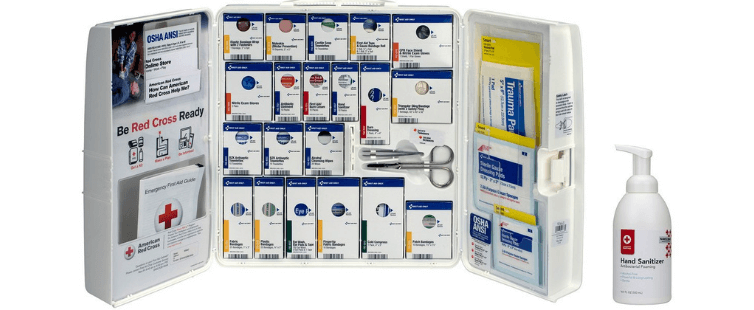Nonprofits Look to Licensing as Funding and Awareness Source

A growing number of nonprofit organizations, many shorn of the level of financial support they’ve previously gained from fundraising events and government, are increasingly turning to licensing in an effort to find new revenue.
Long-term strategy
It’s a tried-and-true strategy – organizations such as World Wildlife Fund, Save the Children, American Red Cross, among many others, have long had extensive licensing programs — that has gained momentum during the past year. And it’s not an instant cash generator for the nonprofit, but rather a longer-term endeavor aimed at raising the organization’s profile that will only generate sales (and royalties) after many months of development. Nevertheless, agencies are reporting increased interest licensing from nonprofits seeking representation.
But not all are ready for prime time. “We came back to some of the nonprofit brands we spoke with and said they weren’t ready for licensing because the brand wasn’t strong enough yet for manufacturers to take a risk on,” says a licensing agency executive, who has spoken with several nonprofits in recent months. “Yes, the brand is great for the mission, but as a product there is a big difference. That’s because that brand is going to have to sit on the shelf or website and compete with all the other big brands in the same category.”
A critical time
The nonprofits’ interest in licensing comes at critical time for many of them. About a third of U.S. nonprofits were expected to close or merge before the U.S economy recovers as private donors, some facing their own financial struggles, turned cautious. It’s a similar picture elsewhere in the world.
So many nonprofits are moving quickly to either enter licensing for the first time or expand their business in a bid to generate revenue and greater awareness.
For example:
- IMG signed late last year to represent the Jackie Robinson Foundation, which has provided more than 1,450 college scholarships to minority youths since its founding in 1973.
- The Frank Lloyd Wright Foundation reached an agreement with Jewel Branding & Licensing, switching to an agency from internal representation as it sought build on its goal of becoming a lifestyle brand. The organization, which has about 50 licensees, will seek new licensees in home furnishings that draw on Wright’s designs rather his buildings like the textile block houses or the Imperial Hotel in Tokyo, says Jewel President Ilana Wilensky. Cookware supplier Epicurean last October launched nine SKUs of kitchen utensils and cutting boards featuring Wright’s designs exclusively at 89 Crate & Barrel stores in the U.S. and Canada.
- Bulldog Licensing signed to handle licensing for Guide Dogs, as the UK charity, which supports people with sight loss, moved into licensing for the first time. The first products, likely plush, will be available later this year as part of a line that also will likely include dog care and training, publishing and other items for adults and children that focus on the organization’s logo, says Rob Corney, Managing Director at Bulldog, which also has worked with Comic Relief and Sesame Workshop in the past.
“While traditional fundraising will undoubtedly redouble in effortonce the organizations are able to, licensing brings a long-term benefit by offering consumers a quid pro quo for their investment,” says Corney. “It’s an opportunity to do good while also gaining something tangible and beneficial.”
Some of those products are coming to or in the market:
- A Red Cross licensee will launch a licensed alcohol-based hand sanitizer this summer targeting dollar stores, building on a non-alcohol-based alternative that Advanced Hygienics introduced in 2018, says Seltzer Licensing’s Stu Seltzer. Another licensee is developing a Red Cross branded kit for hotel guests that includes hand sanitizer, wipes, gloves and other items.
- Raaka Chocolate earlier this month launched New York Botanical Garden (NYBG)-licensed bars that will be available through Mother’s Day (May 9). The chamomile lavender and vanilla violet bars feature packaging with NYBG floral designs.
- Several suppliers launched a Battersea Dogs and Cats Home-licensed product collection through the UK’s Marks & Spencer, including puzzles, tote bags, hand towels, ceramic and travel mugs. The products were introduced as part of Battersea’s “Rescue is My Favorite Breed” campaign, says Hannah Stevens, Head of Retail at agent The Point.1888.
- About 10-12 of Jewel’s Rachel Hale licensees are collaborating with Humane Society International on a “Rachel Hale for the Humane Society” collection that will focus on stationery, backpacks, pet products, puzzles and other items, says Wilensky, whose company signed with the organization last year. Fifty percent wholesale proceeds will go to the Humane Society, which fights cruelty to animals. Rachel McKenna, who worked under the name Rachel Hale and built the brand, published at least 19 books of animal photography. Jewel acquired the brand in 2018.




